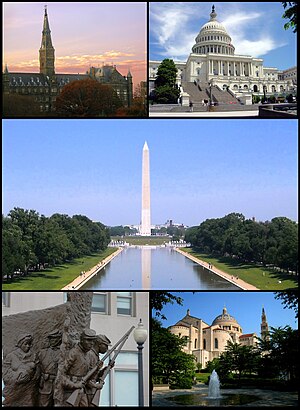 Image via Wikipedia
Image via WikipediaIHC appeals against sleep-over back pay decisipon...
The IHC has appealed against a decision that could cost it $176 million in back pay for workers on overnight stays, despite three courts ruling against them.
An application was lodged yesterday with the Supreme Court to grant leave to appeal against a Court of Appeal decision which ruled last month that overnight stays fitted the legal definition of "work", and that workers should be paid the minimum hourly wage for those stays.
Idea support services worker Phil Dickson, who took the initial case, said it was hypocritical for the IHC to say it had no money to pay workers and then to lodge an appeal that would cost hundreds of thousands of dollars in legal bills.
"They get taxpayer-funded money, they need to be a bit more accountable really. They've been kicked in the arse three times, how many more times do they need?"
His hourly overnight rate for shifts he did nine times a fortnight worked out at $3.77, he said.
The overnight demands not only required workers to be on call throughout the night, but put strain on relationships.
"It's crazy, how much longer do they think the staff are going to subsidise all their services for them? They're still going to end up having to pay us but [now] they'll have all these extra [legal] costs."
Otago University constitutional law expert Andrew Geddis said he did not think the Supreme Court would reach a different finding.
"[The Court of Appeal has] made a sound judgment in law. It just so happens it has pretty unpalatable consequences for the Government."
Lodging the appeal might have as much to do with politics as with law, because it was unlikely any decision would be made before the election, Professor Geddis said.
IHC spokeswoman Philippa Sellens said the organisation could not afford the estimated liability in backpay of $176m, on top of wage costs which would rise $30 million a year.
"We're looking to Government for a solution to this because we simply cannot pay that money.
"We have always said we would like to pay our workers more, that they do a fantastic job ... however, the money we have to pay our staff is what government gives us."
Health Minister Tony Ryall said the decision to apply for an appeal was understandable considering the "significant financial consequences of previous court rulings".
Acknowledgements: The Dominion Post










![Reblog this post [with Zemanta]](http://img.zemanta.com/reblog_e.png?x-id=512c77d9-9f7c-470b-8da8-dfbba94f5599)

![Reblog this post [with Zemanta]](http://img.zemanta.com/reblog_e.png?x-id=00a88221-7dc6-4335-b592-56f6282e38a2)

![Reblog this post [with Zemanta]](http://img.zemanta.com/reblog_e.png?x-id=ac6953f3-7839-410f-bc36-c6e3ce3f1540)